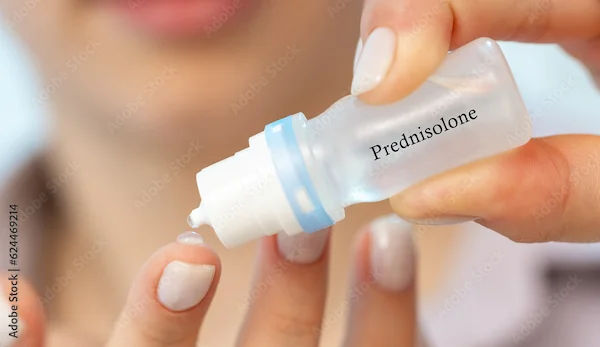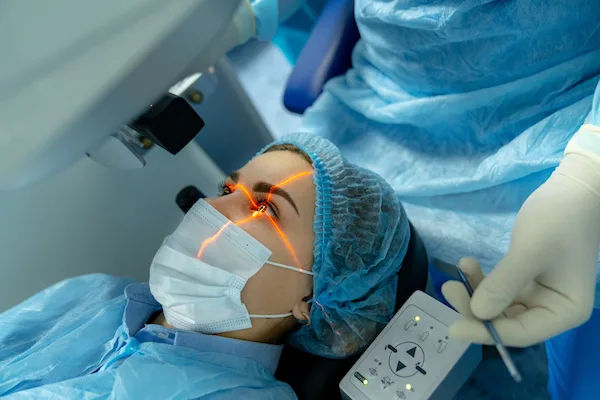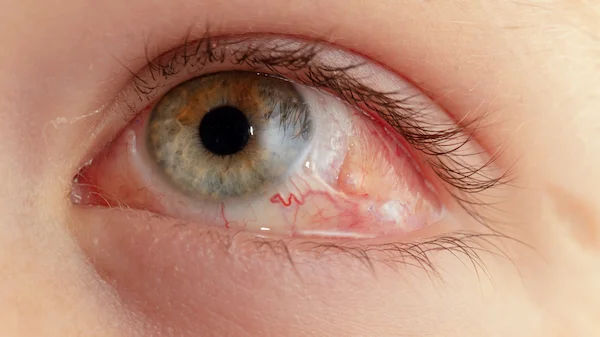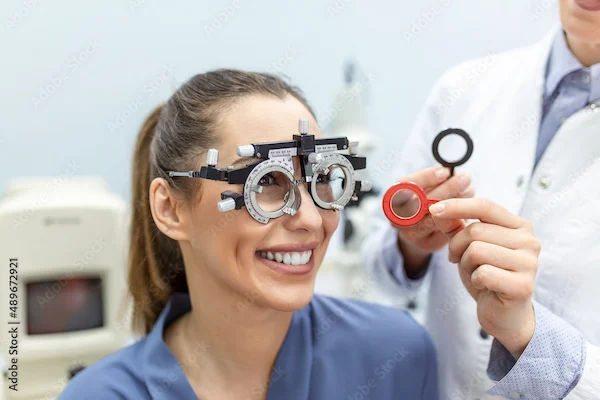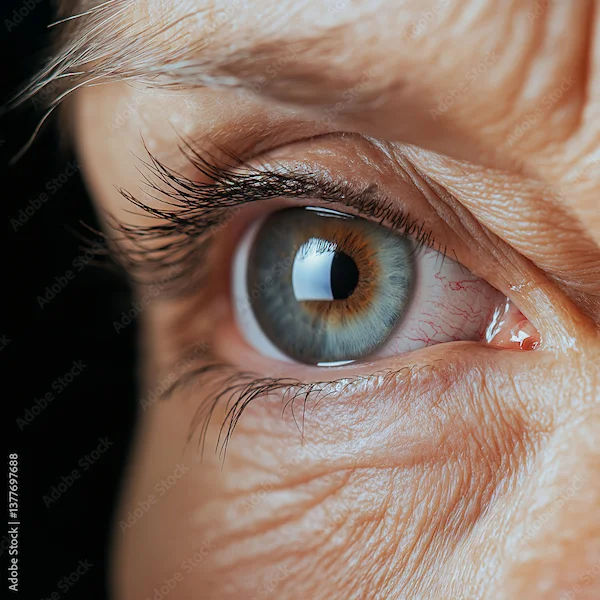After Cataract Surgery Which Lens Is Best?
Confused about which lens is best after cataract surgery? Learn about the different types of intraocular lenses (IOLs) and how to choose the right one for your vision needs.

Written by
Last updated on 3rd Jul, 2025
_0.webp)
Introduction
Cataract surgery is a common and highly successful procedure that helps restore clear vision by replacing the cloudy natural lens of the eye with an artificial intraocular lens (IOL). One of the most important decisions you'll make before surgery is choosing the right type of lens. With several options available, it’s essential to understand the differences to make an informed choice that suits your lifestyle and vision needs.
Understanding Cataract Surgery and IOLs
During cataract surgery, your eye surgeon removes the clouded natural lens and replaces it with an artificial lens called an intraocular lens (IOL). The type of IOL you choose will affect your vision after surgery, including whether you’ll need glasses for certain activities.
Types of Intraocular Lenses (IOLs)
There are several types of IOLs available, each designed to address different vision needs. Here’s a breakdown of the most common options:
1. Monofocal IOLs
Best for: Patients who want clear vision at one fixed distance (near, intermediate, or far).
How it works: Provides sharp vision at a single focal point. Most people choose distance vision and use reading glasses for near tasks.
Pros: Reliable, covered by most insurance plans, and has a long track record of success.
Cons: You may still need glasses for reading or computer work.
2. Multifocal IOLs
Best for: Those who want to reduce dependence on glasses for both near and distance vision.
How it works: Contains multiple focal points to help you see clearly at different distances.
Pros: Can reduce or eliminate the need for glasses.
Cons: Some patients experience halos or glare around lights at night.
To Know More Consult Top Ophthalmologists
3. Accommodative IOLs
Best for: People who want a more natural transition between near and far vision.
How it works: Moves slightly within the eye to adjust focus, mimicking the natural lens.
Pros: Provides a broader range of vision than monofocal lenses.
Cons: May not be as effective as multifocal lenses for close-up tasks.
4. Toric IOLs
Best for: Patients with astigmatism (an irregularly shaped cornea).
How it works: Corrects astigmatism while also improving distance vision.
Pros: Reduces the need for glasses after surgery.
Cons: More expensive than standard monofocal lenses.
5. Extended Depth of Focus (EDOF) IOLs
Best for: Those who want a continuous range of vision without multiple focal points.
How it works: Provides a smooth transition between near, intermediate, and distance vision.
Pros: Less glare and halos compared to multifocal lenses.
Cons: May still require reading glasses for very small print.
How to Choose the Right Lens for You?
Selecting the best IOL depends on your lifestyle, visual needs, and budget. Here are some key factors to consider:
Your Daily Activities: Do you drive often? Work on a computer? Enjoy reading?
Budget & Insurance Coverage: Some premium lenses (like multifocal or toric IOLs) may not be fully covered by insurance.
Eye Health: Conditions like astigmatism or dry eye may influence your choice.
Willingness to Wear Glasses: If you don’t mind wearing glasses occasionally, a monofocal lens may suffice.
Questions to Ask Your Doctor
Which lens is best suited for my eye condition?
What are the risks and benefits of each lens type?
Will I still need glasses after surgery?
How long does it take to adjust to the new lens?
Recovery and Adjusting to Your New Lens
After cataract surgery, your vision will gradually improve over a few weeks. Some patients experience temporary blurriness, glare, or mild discomfort, but these usually subside.
Tips for a Smooth Recovery
Follow your doctor’s post-surgery instructions carefully.
Avoid rubbing your eyes or strenuous activities for a few weeks.
Use prescribed eye drops to prevent infection and inflammation.
Wear sunglasses outdoors to protect your eyes from bright light.
When to Consult a Doctor?
If you experience severe pain, sudden vision loss, or excessive redness after surgery, seek medical attention immediately.
The expert ophthalmologists at Apollo 24|7 can guide you through the best options based on your eye health and lifestyle. Book a consultation today to discuss your cataract surgery and lens choices.
Conclusion
Choosing the right IOL is a personal decision that depends on your vision needs and daily activities. Whether you opt for a monofocal, multifocal, or toric lens, cataract surgery can significantly improve your quality of life by restoring clear vision.
Have more questions? Schedule an appointment with an eye specialist on Apollo 24|7 and take the first step toward better vision!
Consult Top Ophthalmologists
To Know More Consult Top Ophthalmologists
Dr. S Venkateswaran
Ophthalmologist
35 Years • MBBS, PGD (OPTHALMOLOGY)
Tiruvannamalai
Shiva Eye And General Hospital, Tiruvannamalai

Dr. Anchal Gupta
Ophthalmologist
10 Years • MBBS,MS ( Opthamology )
New Delhi
NETRAM EYE FOUNDATION, New Delhi

Dr. Sahiti Salguti
Ophthalmologist
10 Years • MBBS,MS Ophthalmology
Hyderabad
Yeshass Nethralaya eye hospital, Hyderabad
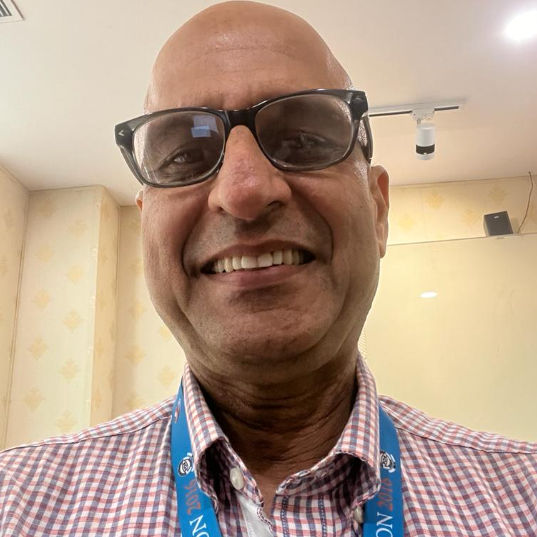
Dr Rajesh Rastogi
Ophthalmologist
33 Years • MBBS, MS Ophthalmology
New Delhi
Rotary Diabetic Centre, New Delhi

Dr. Syed Saifullah Bokhari
Ophthalmologist
4 Years • MBBS, MS(Ophthalmology)
Bengaluru
Vasan Eye Care, Bengaluru
Consult Top Ophthalmologists
Dr. S Venkateswaran
Ophthalmologist
35 Years • MBBS, PGD (OPTHALMOLOGY)
Tiruvannamalai
Shiva Eye And General Hospital, Tiruvannamalai

Dr. Anchal Gupta
Ophthalmologist
10 Years • MBBS,MS ( Opthamology )
New Delhi
NETRAM EYE FOUNDATION, New Delhi

Dr. Sahiti Salguti
Ophthalmologist
10 Years • MBBS,MS Ophthalmology
Hyderabad
Yeshass Nethralaya eye hospital, Hyderabad

Dr Rajesh Rastogi
Ophthalmologist
33 Years • MBBS, MS Ophthalmology
New Delhi
Rotary Diabetic Centre, New Delhi

Dr. Syed Saifullah Bokhari
Ophthalmologist
4 Years • MBBS, MS(Ophthalmology)
Bengaluru
Vasan Eye Care, Bengaluru
